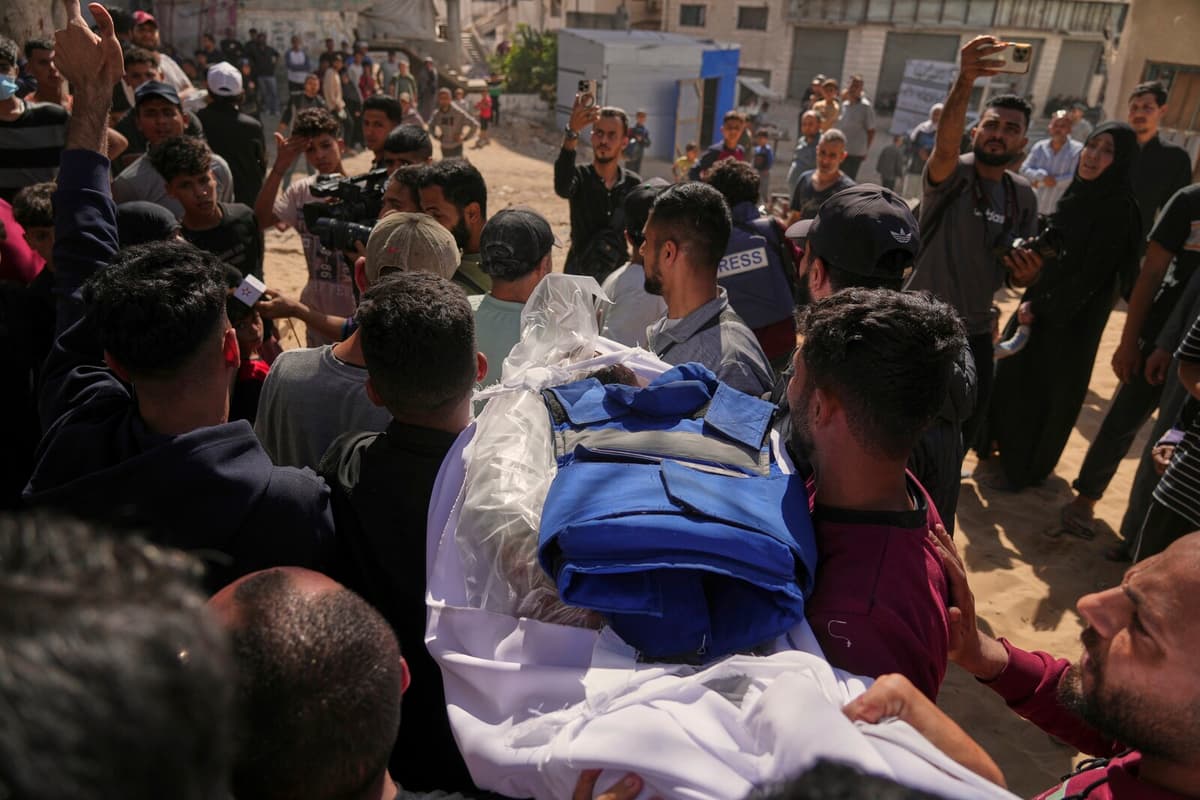The Gaza Strip is under a strict blockade from Israel, which has led to famine. Over 100 aid and human rights organizations have warned that "mass starvation" is spreading.
In a joint press release, the media organizations write that they are "desperately worried" about the local journalists they collaborate with in Gaza, who "to an increasingly high degree cannot eat or provide their families with food".
Furthermore, they add that "journalists endure many hardships and difficulties in war zones. We are deeply concerned that starvation is now one of these threats."
With Gaza cut off from the rest of the world, many media houses around the world are dependent on photo, video, and text material from Palestinian journalists working for international news agencies such as AFP.
"We have no energy left due to hunger and lack of food," said Omar al-Qattaa, a 35-year-old AFP photographer who was nominated for the prestigious Pulitzer Prize earlier this year.
Since the war began after the terrorist-stamped Hamas attack against Israel on October 7, 2023, journalists have only been able to enter Gaza together with the Israeli army and under strict military censorship.
"We know that probably most journalists inside Gaza are operating under Hamas rule, and until Hamas is destroyed, they will not be able to report freely," said the Israeli government's spokesperson David Mercer at a press conference in December.






